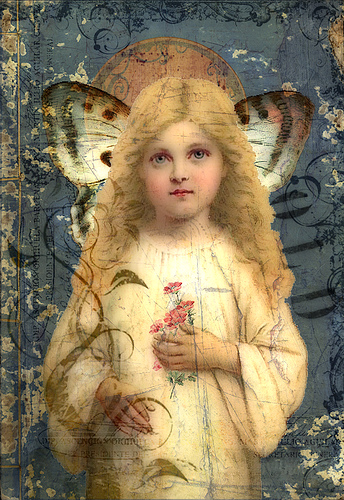“How’s my mustache, Melanie?” my father would say when I’d pick him up for lunch or for his doctor’s appointments.
Of course, he wasn’t really asking me about his mustache. He was asking me how he looked in general. Was he still the handsome, charming man he’d always been? Still as attractive at 84 as he’d been at 64? At 44?
“Well, Dad, your mustache looks pretty good to me,” I’d tell him, and he’d ask me why don’t I just trim a few hairs off for him.
He’d sit down and I’d take my miniature scissors out of my Swiss Army knife and he’d put his gray head back, kind of holding his lip up and, one hair at a time, maybe two, I’d trim his Zorba the Greek mustache.
“Yeah, Dad,” I’d tell him. “You’re still as handsome as ever. The women will still all go for you.”
The last time I had a conversation with my father, I was standing in the doorway to his hospital room staring at his mustache. He was asleep; breathing that long, slow, labored breathing I had seen so much of in previous weeks. His doctors had told me he had pneumonia again and even as I knew that he wouldn’t survive this time, I stood and looked at his mustache. It was the only thing I could look at.
A pale hand rose from the covers and waved towards me.
I approached the bed, my dad’s white hair and white skin shining in the twilight.
“I… want… to… tell… you… something,” he rasped, barely able to push the words out.
I leaned down close to him and slowly, between rests for breath and concentration, he told me about a dream he’d had. In the dream, a Japanese woman had come to take him to New York to show him his coffin.
I stayed bent over him, small blue lights blinking and beeping on a nearby machine while he kept reaching for me and looking at me.
He wanted to be sure I knew that this woman had come to wait with him and that she wasn’t going to leave him and that although she came in a dream, she wasn’t a dream, she was real. She had told him that wherever he was going, she was going too.
“She’s real…” he repeated. “Real.”
I could feel his urgent need for me to believe that she was real—that she wasn’t just a figment.
“What’s her name, Dad,” I asked him.
“Sa-ku-ra.” He drew the name out slowly.
He pointed to the top of the door jamb across the room with a trembling finger and told me to look, “…There she is,” he said.
I had the impulse to give him the usual denials. To tell him something rational like “it was impossible for a woman to be at the top of a door jamb,” or that it was “just the medicine” that was making him see her.
But I didn’t.
My dad thought that this woman—this “something”—whether she was real or not, had come to be with him and to stay with him so that he wouldn’t be alone.
He’d always told me that he thought the hardest part of dying would be the aloneness of it.
“I’m not afraid of dying,” he’d say. “I’m afraid of being alone.”
I patted him with a cool cloth while he stared fixedly at the spot over the door and told me she had been there since that afternoon.
When my mother had been in the midst of her Alzheimer’s disease, I learned that if, instead of disagreeing with her and explaining to her how things couldn’t be the way she saw them, I agreed with her. In her world of garbled words and mixed-up realities, that terrible blank stare would fall off her face. It was when I went into my mother’s world with her, rather than try to drag her into mine, that she smiled.
When my father pointed to the door jamb in his hospital room I thought of my mother and of her smile and of how my dad was looking at me from inside his world, inviting me to join him.
But he wasn’t the only one who was afraid. I was afraid too. I was afraid that if I agreed with him that Sakura was real, I was giving him permission to go fully into that other world with her—and leave me behind.
I looked at my father’s face and saw a radiance I had never seen before. How could I take that away from him for my own sake. How could I rob him of Sakura for my own selfish reasons? I wasn’t thinking of him, of this Navy Cross war hero, this community theatre leading man, this lover of life, philosopher, arm-chair psychologist, story teller man so handsome he couldn’t-help-it-if-all-the-women-chased-him.
I was thinking of me. Me and my own fears and my own needs.
I’d heard a meditation teacher say once that grief can be selfish.
And there I was, being selfish while my father was dying.
“I’m glad she’s come for you dad,” I said, tears running down my cheeks. “I’m glad you won’t be alone.”
He turned his oh-so-vulnerable gaze on me, his eyes filled with gratitude.
“Me too,” he said, touching a finger to his upper lip.
Ever the ladies man, an old familiar light came into his eyes.
“How’s my mustache, Melanie” he said.
“It looks pretty good to me, Dad.”
He died 36 hours later—a faint smile on his face.
~
Relephant read:
The Value of Holding Space with Another’s Grief.
Author: Carmelene Siani
Editor: Ashleigh Hitchcock
Photo: media library











Read 0 comments and reply